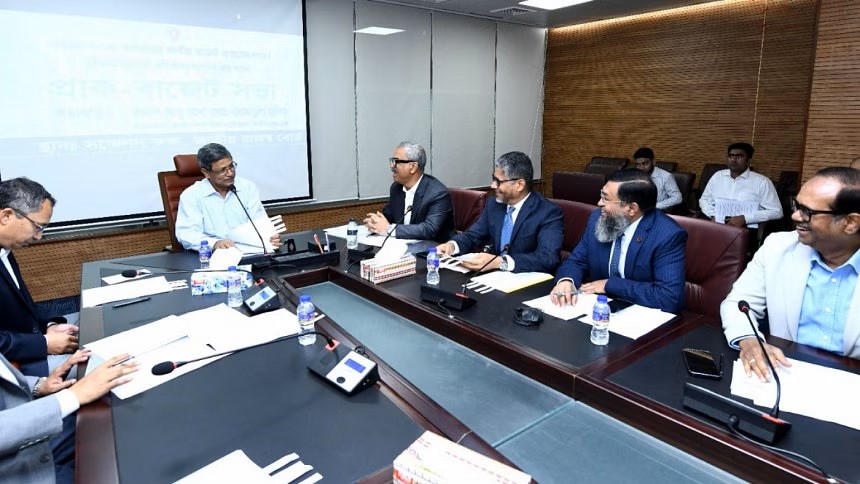
Apparel exporters today sought a host of tax benefits, including bringing down the tax deducted at source and withdrawing income tax levied on cash incentives in the upcoming fiscal year, in a bid to help the garment industry deal with the current economic stress.
The proposals are aimed at retaining the growth in apparel exports and the country’s competitiveness in the global market, said the Bangladesh Garment Manufacturers and Exporters Association (BGMEA).
BGMEA President Faruque Hassan placed the proposals during a meeting with the National Board of Revenue (NBR) at the latter’s headquarters in the capital’s Agargaon.
The BGMEA said the garment sector is facing a new challenge owing to the deep uncertainty globally stemming from the Russia-Ukraine war.
The apparel industry is losing competitiveness because of global higher inflation, a hike of the prices of yarn, chemicals, fuels, gas, and electricity, and a spike in container freight costs, it said.
According to one of the proposals, the tax deducted at source should be slashed to 0.5 per cent from 1 per cent in 2023-24. The reduced rate should be continued for five years.
“Owing to the higher tax deducted at source, exporters are finding it increasingly difficult to operate business amid the global crisis,” the BGMEA argued.
The association asked the NBR to apply the current corporate tax rate during the assessment of dis-allowable expenses and other incomes.
Currently, the government has imposed a 12 per cent corporate tax on garment industries and 10 per cent on green garment factories.
But during the assessment, the corporate tax rate applicable for private limited companies is imposed in the case of various incomes such as gains from assets disposal and dis-allowable expenses.
The BGMEA suggested cutting the tax deducted at source from 3 per cent to 0.5 per cent, from 5 per cent to 2 per cent, and from 7 per cent to 3 per cent for subcontractors.
It reasoned that usually, small and medium-sized industries accept sub-contracting orders from larger ones amid a lack of adequate orders or when bigger manufacturers face tight deadlines to supply products to their international buyers.
“But all of the products manufactured by sub-contracting firms are exported and as a result, foreign currencies are earned. So, the higher tax deducted at source is not logical,” said the BGMEA.
It said the NBR should withdraw the 10 per cent income tax imposed on the cash incentives and slashed the income tax deducted at source on the fee against the funds secured from the Export Development Fund to 10 per cent from 20 per cent.
The association sought a value-added tax exemption on the procurement of products and services from the local market.
They include the products and services provided by printing press, courier services, audit and accounting firms, architecture and interior design firms, and all expenses aimed at corporate social responsibility activities.
The BGMEA said companies that don’t enjoy bonded warehouse facilities should be allowed to open back-to-back letters of credit so that they can smoothly purchase inputs and raw materials from the domestic market.
A back-to-back LC involves two letters of credit to secure financing for a single transaction. It is used primarily in international transactions.
There are 1,100 factories that are members of the BGMEA, the Bangladesh Knitwear Manufacturers and Exporters Association, and the Bangladesh Terry Towel & Linen Manufacturers & Exporters’ Association that don’t have the bonded warehouse facility. More than 7 lakh people work there and their combined export receipts stand at about $6.5 billion.
Users should be allowed to renew their bonded warehouse licence after every three years from two years now, said a BGMEA proposal.
















